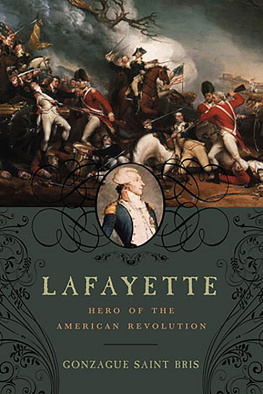About eleven oclock on the night of February 18 or 19, he never could remember which, in the year of our Lord 1807, a backwoods lawyer named Nicholas Perkins, who headed the federal land office in Mississippi Territory, left the group around the fire in Sheriff Theodore Brightwells log tavern and went to the door for a breath of fresh air. It was a night of clear, frosty moonlight. Perkins could see far down the rutted road. Though a fearless giant of a man and a major in the territorial militia, Perkins was nevertheless startled to see two horsemen come riding up out of the forest.
The smaller of the horsemen rode right past. He was a shabby-looking little fellow lost under a broad-brimmed beaver hat. His companion reined in his horse and asked Perkins the way to Major Hinsons. His name was Major Robert Ashley.
Perkins told Ashley that the major was away from home and added that the flooding of the creeks would make it hard for a stranger to reach the Hinson house that night. The sensible thing would be to put up at the tavern, where there was refreshment for man and beast. Ashley insisted they must push on, so Perkins told him the best places to ford the streams. While he was talking to Ashley, Perkins stared at the first traveler, who had pulled up his horse thirty or forty yards up the road. Something about the man aroused his suspicions.
Perkins had read President Thomas Jeffersons proclamation warning of a treasonous conspiracy on the Mississippi and the territorial governors proclamation that followed offering a $2,000 reward for the apprehension of the former Vice President of the United States, Colonel Aaron Burr. Rumor had it that Colonel Burr had jumped bail at Natchez, 200 miles to the west, two weeks before. Perkins scratched his head as he walked to the fire. These men were up to no good. Might the little man with the hat brim flapped over his face be Aaron Burr himself?
Right away, Perkins roused the sheriff, who was related to Mrs. Hinson, out of bed. They saddled their horses and rode off after the travelers. They found Ashley in the front room of the Hinson home. When she heard voices she knew, Mrs. Hinson, who had been hiding in the back of the house in a fright ever since the strangers walked in, emerged and started to fry up some supper for her visitors.
The small man warmed himself beside the kitchen fire, his hat still pulled down over his face. Perkins observed him narrowly. He wore a boatmans ragged pantaloons and a coarse blanket wrap-around belted by a strap. His once-white hat was stained and shabby, but the riding boots on his small feet were elegant and new. Perkins caught one quick glance of his eyes from under the brim of the hat and was convinced that the man must be Colonel Burr. Everyone spoke of how Burr could look clear through you with his lustrous black eyes.
He took Ashley aside and asked him point-blank if his companion was Colonel Burr. Ashley became agitated and walked out of the house without a word.
Perkins began to feel the $2,000 almost in the palm of his hand, but he had to move with circumspection. The little colonel was greatly respected in the western country and was known to be a dead shot. Mumbling a misleading excuse, Perkins rode off in a hurry, borrowed a canoe, and sped down the flooding Tombigbee River to a palisade named Fort Stoddert, the last American fortification before the frontier of Spanish West Florida.
Arriving there about daybreak, he roused Lieutenant Edmund P. Gaines, commander of the federal detachment, and told him he had the traitor Burr in his grasp. At this moment, Burr would be starting down the trail to Pensacola; there was no way to cross the river except at Mrs. Carsons ferry. The lieutenant ordered out a file of mounted soldiers, and they galloped off to intercept him.
They found Burr and his companion on the trail to the ferry. The sheriff, charmed by Burr after a few minutes conversation, was acting as their guide to the Spanish border. Colonel Burr pointed out to the young lieutenant the risk he took in making an arrest without a warrant. The lieutenant brought out the presidents proclamation and that of the territorial governor, but Burr declared both illegal and unconstitutional. The lieutenant insisted that he was an officer in the United States Army and had to do his duty. Colonel Burr would be treated with all the respect due a former Vice President of the United States - if he made no effort to escape. The little colonel was conducted back to the fort and shut up in a room where he ate dinner alone. Sentries were posted at the windows and doors. Ashley, meanwhile, had disappeared into the woods.
Lieutenant Gaines and Perkins started racking their brains as to how they could get their prisoner safely to Washington, D.C. The weather was freezing and drizzly. There were no roads yet through the enormous woodlands of Mississippi Territory. The country abounded in Indians of doubtful loyalty. Rumors had enormously magnified the size of Burrs expedition. For all Gaines and Perkins knew, the back country was full of partisans grouping to rescue their leader.
It fell to Lieutenant Gaines to take the little colonel into his family under a sort of parole. Gainess brother, who was government factor to the Choctaw nation, was ill in bed. Burr, the soul of tact and courtesy, explaining that hed picked up a certain amount of medical information on his travels, helped nurse the brother back to health. Meanwhile, he sat at his bedside and amused him with sprightly talk about Indian quirks and customs. At the table, he fascinated the family with his knowledge of books and pictures and the great world. He fixed his black eyes on the ladies with respectful attention and played chess with Mrs. Gaines. Not a word passed his lips about the failure of his western project or about his arrest or his plans.
Lieutenant Gaines was counting the hours until he could get rid of his prisoner, whose friends had spread the story that the aim of Burrs thwarted expedition was to drive the Spaniards out of West Florida. Every settler in the Mississippi Territory shared Burrs sentiments and was sympathetic to the colonels troubles. A week longer, Gaines wrote to his commander, [and] the consequences would have been of a most serious nature.
At last, the floods subsided to the point where Gaines felt it would be safe to try to take his prisoner up the Alabama River in a government boat. When they stopped at John Millss house on the Tensaw River, the ladies of the family all wept over Colonel Burrs travails. A certain Mrs. Johnson was so moved by his plight that when she gave birth to a boy some months later, she named him Aaron Burr. When a lady does me the honor to name me the father of her child, Burr remarked, I trust I shall always be too gallant to show myself ungrateful for the favor.
At a boatyard at the mouth of the Alabama, Gaines turned his prisoner over to Perkins and his friend Thomas Malone and a guard of six men, including two federal soldiers with muskets, to escort Burr to Washington, D.C. Gaines sent them off with strict orders not to speak to their prisoner or listen to his blandishments and to shoot to kill if he attempted to escape.
The lieutenant had found them good horses. Riding thirty or forty miles a day, avoiding the settlements, they hurried their prisoner along Indian traces in the March rain; half the time, they were drenched to the skin. The nights were cold, and wolves howled about their campfires. Burrs fortitude amazed his guards: He never complained or showed signs of fatigue. He rode his fine horse as if he were at the head of his New York regiment.
They crossed the rivers in Indian canoes, swimming their horses alongside. At last, on the Oconee River in the state of Georgia, they found a ferry and an inn not far beyond. For the first time since leaving the Alabama country, they slept under a roof. When they crossed into South Carolina, Perkins redoubled his precautions. He knew that Joseph Alston, the husband of Burrs beloved daughter, Theodosia, was a member of the legislature. Public sentiment there was supposed to be strong for Burr. Perkins arranged his cavalcade in a square with Burr in the middle. Two riders went ahead of him, two on either flank, and two behind. They passed through towns and villages at a brisk trot.













